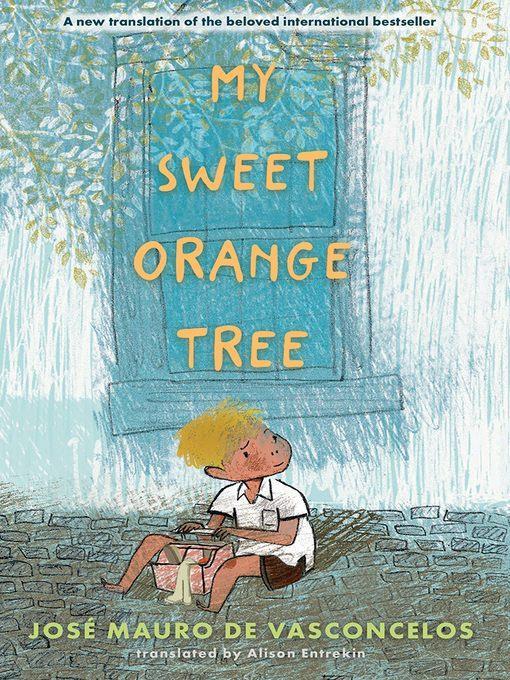
My Sweet Orange Tree
فرمت کتاب
ebook
تاریخ انتشار
2019
Reading Level
2-3
ATOS
3.9
Interest Level
6-12(MG+)
نویسنده
José Mauro de Vasconcelosناشر
Candlewick Pressشابک
9781536204711
کتاب های مرتبط
- اطلاعات
- نقد و بررسی
- دیدگاه کاربران
نقد و بررسی

June 15, 2019
The misadventures of a precocious 5-year-old in 1920s Rio de Janeiro. Gifted Zezé's family has been down on their luck since his father lost his job. His smarts and imagination are often misdirected into pranks that lead to violent punishment. Life starts to look up when Zezé begins school and also meets two new friends: Pinkie, the talking orange tree which grows in the garden of the family's new house, and Manuel, a Portuguese man who becomes his only source of adult tenderness and care. But just as Zezé's family's fortunes start to change, the boy meets relentless tragedy and heartbreak. First published in 1968, this autobiographical novel is at once a bleak portrayal of emotional and physical abuse and an affecting examination of the healing powers of imagination and of nurturing friendship. Zezé is told multiple times--and internalizes the message--that the devil is inside him, and the shockingly graphic violence often leaves him bleeding (one such beating leads the boy to think of suicide). It's only when he shares his emotional pain with "Portuga" (Zezé's nickname for Manuel) that he starts to learn what real love is. With a plainspoken and episodic narrative, the novel reads as a coming-of-age story despite the character's youth. Zezé is fair and blond, Portuguese on his father's side and Apinajé Indian on his mother's. A Brazilian classic with a whimsical and heart-rending essence. (translator's note) (Fiction. 12-adult)
COPYRIGHT(2019) Kirkus Reviews, ALL RIGHTS RESERVED.

August 5, 2019
In this English translation of a Brazilian classic originally published in 1968, Zezé, a clever and mischievous five-year old boy, charms readers as he experiences the wonders and trials of childhood in Rio de Janeiro. Narrated by Zezé’s older self, 40 years later, the novel carries a distinct undercurrent of nostalgia and gravitas. Among the many memorable characters are street performer Ariovaldo, who treats the determined Zezé as an equal; Dona Cecília Paim, who sees the good in a boy often dismissed as trouble; and Manuel Valadares, the first to exhibit tenderness to Zezé. Inspired by the author’s own childhood, the story is at once specific and universal: Zezé’s individual struggles and personality are uniquely his own, but his dreams of feeling seen, accepted, and safe are human commonalities. Capturing the realistically fluid, unformed nature of childhood, the author presents a boy who might lovingly confide in an orange tree named Pinkie, then, moments later, execute mean-spirited pranks and hurl cutting insults. This moving Brazilian classic is rich with opportunities for contemplation and discussion. Ages 14–up.

July 1, 2019
Grades 8-12 Z�z� is a small child, just beginning school, but this account of his troubled life is meant for more mature readers. Beatings by family members, the unemployment and depression of his father, and hunger, along with Z�z�'s salty tongue, make him a sympathetic hero for teen and adult readers who like tales of overcoming trials. When Z�z� meets an older man who becomes an adoptive grandfather, the smart, street-wise child learns to savor the simple things, letting his imagination flourish as he befriends a small fruit tree in his family's yard. For once, the boy doesn't feel evil, as he has been told he is, and an intense, tragic ending is tempered by what Z�z� has learned. Blending the tart hardship of poverty with the sweetness of finding things that make life worth living, De Vasconcelos' fictional work?a classic in Brazil?�is based on his own difficult childhood in a suburb of Rio de Janeiro. Entrekin's new translation makes a good addition for collections in need of international diversity.(Reprinted with permission of Booklist, copyright 2019, American Library Association.)

























دیدگاه کاربران